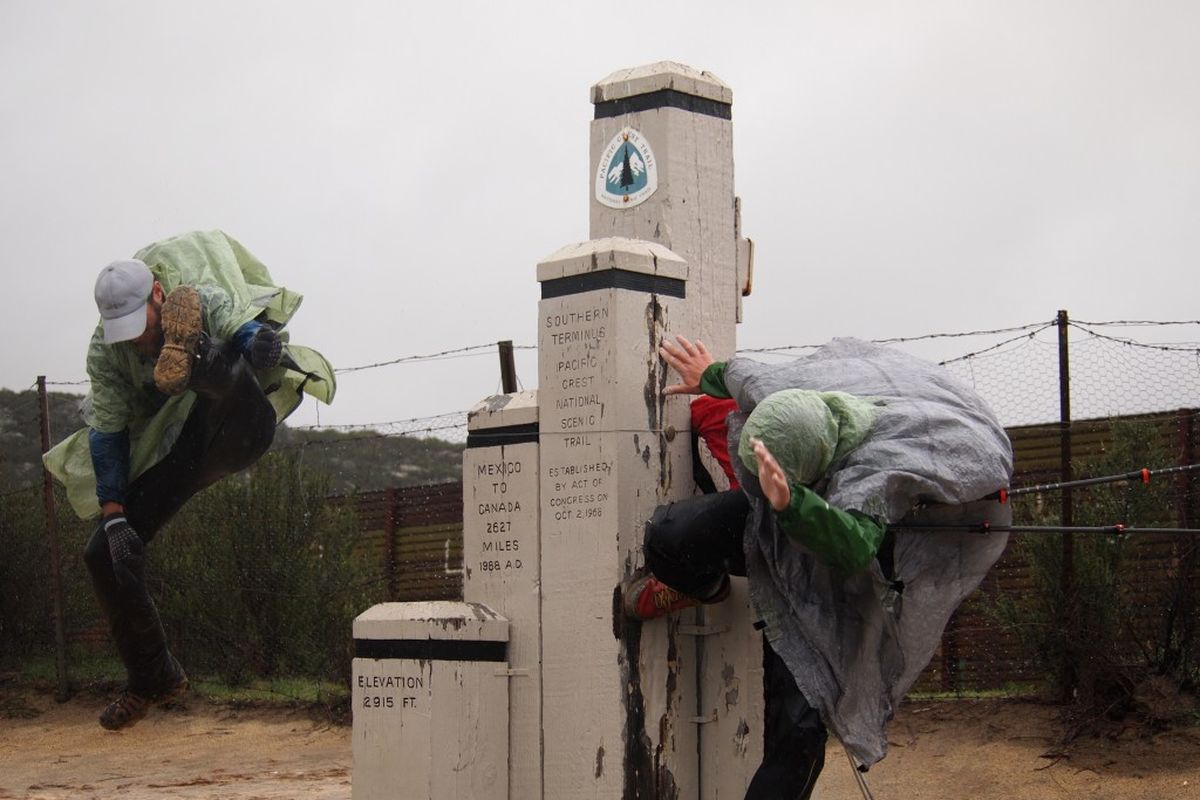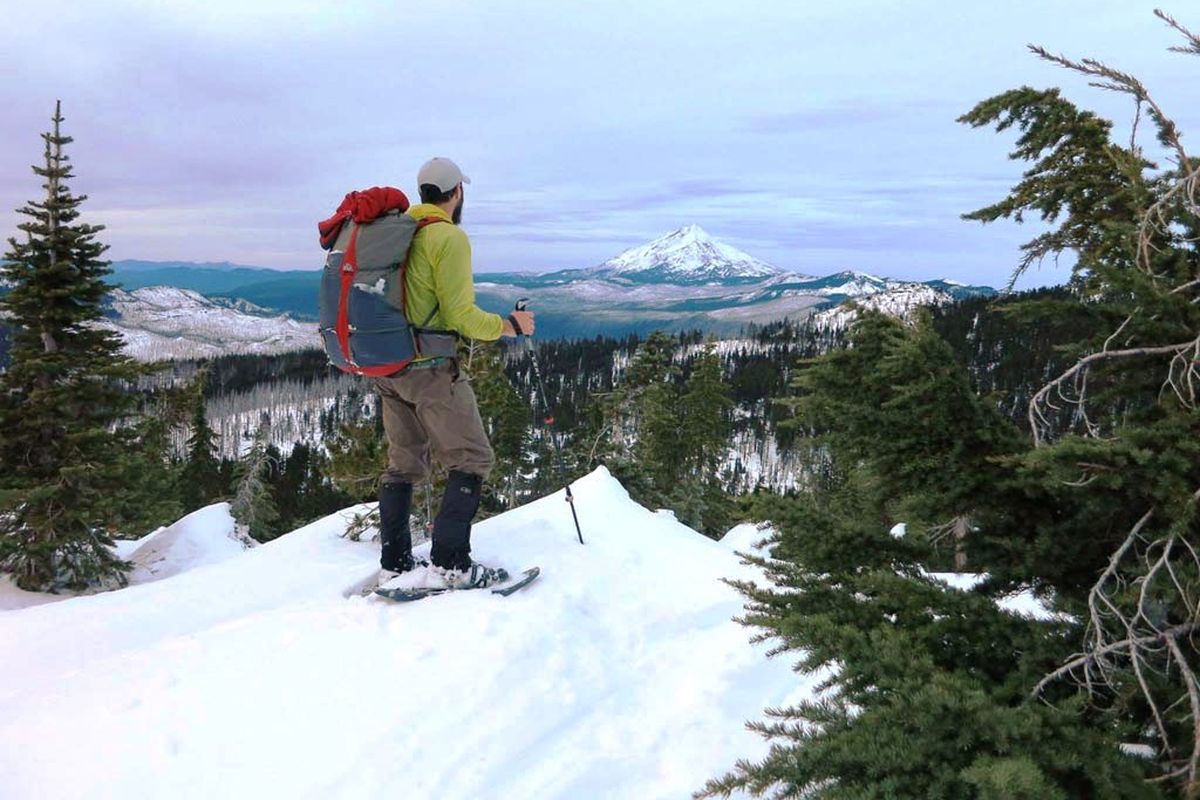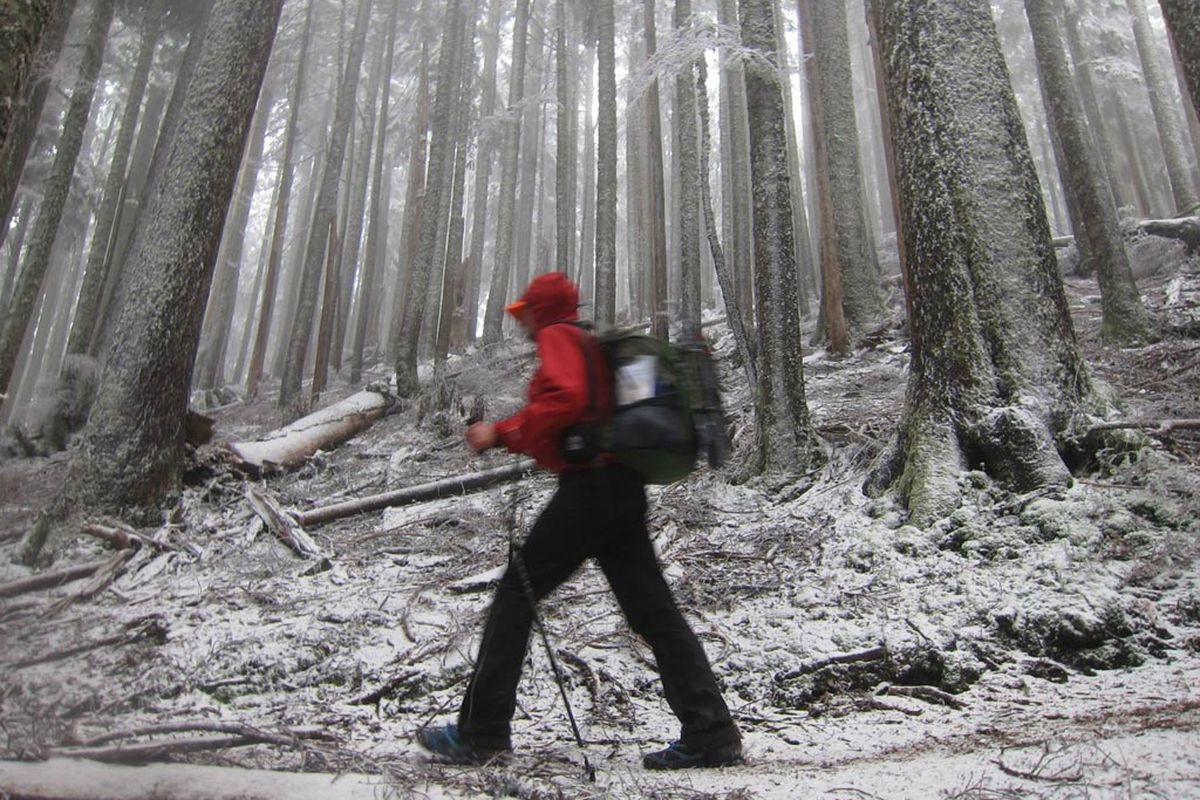Duo completes first winter thru-hike of Pacific Crest Trail
Photo from the first winter thru-hike of the Pacific Crest Trail completed in March 2015 by Shawn Forry of Midpines, Calif., and Justin Lichter of Truckee, Calif. (Courtesy)
TRAILS -- Two California men on Monday, March 2, completed the first winter thru-hike of the Pacific Crest Trail after 132 days of walking, skiing and snowshoeing along the 2,650-mile route from Canada to their finish at the Mexico border.
Never mind that they took time off the trail at Christmas and were blessed with an extremely low snowpack in the Cascades and Sierras this season: Shawn Forry, 33, of Midpines, Calif., and Justin Lichter, 34, of Truckee, Calif., still had to slog through snow and slush, skirt cornices and avalanche danger and endure bitter cold and frostbite in their carefully chosen ultra-light clothing and gear totaling about 18 pounds apiece.
- Lichter, who goes by the trail name "Trauma," has channeled his extensive knowledge of lightweight backpacking into two books, Trail Tested: A Thru-Hiker’s Guide to Ultralight Hiking and Backpacking and Ultralight Survival Kit, a collection of backpacking tips.
The trek wasn't a lark. Before setting out on the PCT on Oct. 21, the two men had combined had more than 55,000 miles of trail hiking experience in seven different countries. They knew the PCT would be brutal in winter and set their goal on finishing in April.
Lichter, a ski patroller, had more than 35,000 miles of backcountry experience around the world before this trek and Forry, trail name "Pepper," is an instructor with with Outward Bound California who'd logged more than 15,000 miles. The two also had completed a 150-mile ski-and-hike trip last year between the Sonora Pass and Mammoth Lakes.
Roughly 1,300 to 1,500 hikers attempt to thru-hike the PCT each year, and just more than half of them finish even though most of them travel south to north beginning in late April so they can finish in September or October and avoid the additional challenges of winter.
“When he told me it has never been done before I kind of said ‘you know there is probably a reason,”’ Forry's father, Randy Forry, told the Reno-Gazette-Journal. The risk associated with the winter trek was such that before Lichter and Forry decided to attempt it, many within the hiking community would have considered it foolhardy.
The Pacific Crest Trail's popularity has boomed since 2012 after the release of Cheryl Strayed’s book Wild and has received another big boost from the recent film adaptation starring Reese Witherspoon. In February, the Pacific Crest Trail Association announced a new permit system to limit the number of hikers who can start from the trail’s southern terminus to 50 people a day starting this spring.
But unlike summer hikers, Forry and Lichter had to be prepared to deal with issues on their own.
“Generally you’re around enough people that if something happened to you, someone would come along in 24 hours at the latest,” Whitney LaRuffa says in a wrap-up report posted today by Outside Magazine online. LaRuffa, an experienced thru-hiker and the President of the American Long Distance Hiking Association-West, had high regard for the two winter trekkers who, during a 1,700-mile stretch from Snoqualmie Pass in Washington to north of Walker Pass in California, didn’t see another soul.
One of the pluses of hiking the PCT, say's Lichter, is then when they take a rest day or resupply, they can nab a motel room at cheap winter rates. But there's no softening the nights on the trail.
“What Shawn and Justin have done is really remarkable,” said Jack Haskel, who kept track of the effort in his blog as trail information specialist for the PCTA.
“For them to be able to plan a hike that completely goes against that norm and faces all those challenges, rather than structuring their hike to avoid them, makes what they’ve done unique and exceptionally challenging,” Heather Anderson told Outside. Anderson set the self-supported speed record on the PCT in 2013.









